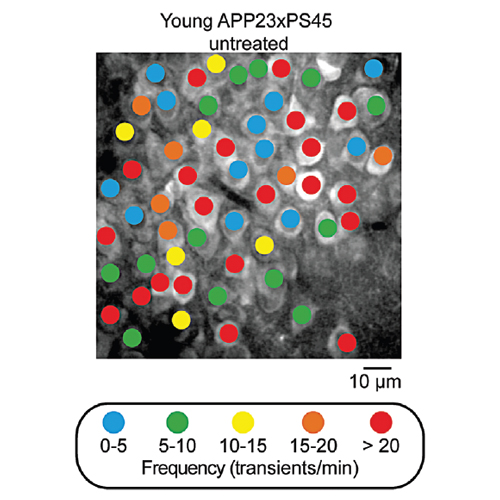Neuronal hyperactivity – A key defect in Alzheimer's disease?
14-Mar-2015
Bio Essays, 2015, DOI 10.1002/bies.201500004, Volume 37, Issue 6, pages 624–632, published on 14.03.2015
Bio Essays, online article
Bio Essays, online article
Traditionally, the impairment of cognitive functions in Alzheimeŕs disease (AD) is thought to result from a reduction in neuronal and synaptic activities, and ultimately cell death. Here, we review recent in vivo evidence from mouse models and human patients indicating that, particularly in early stages of AD, neuronal circuits are hyperactive instead of hypoactive. Functional analyses at many levels, from single neurons to neuronal populations to large-scale networks, with a variety of electrophysiological and imaging techniques have revealed two forms of AD-related hyperactivity and provided first insights into the synaptic mechanisms. The unexpected finding that hyperactivity is an early neuronal dysfunction represents a major conceptual shift in our understanding of AD that may have important implications for the development of therapeutic approaches.











